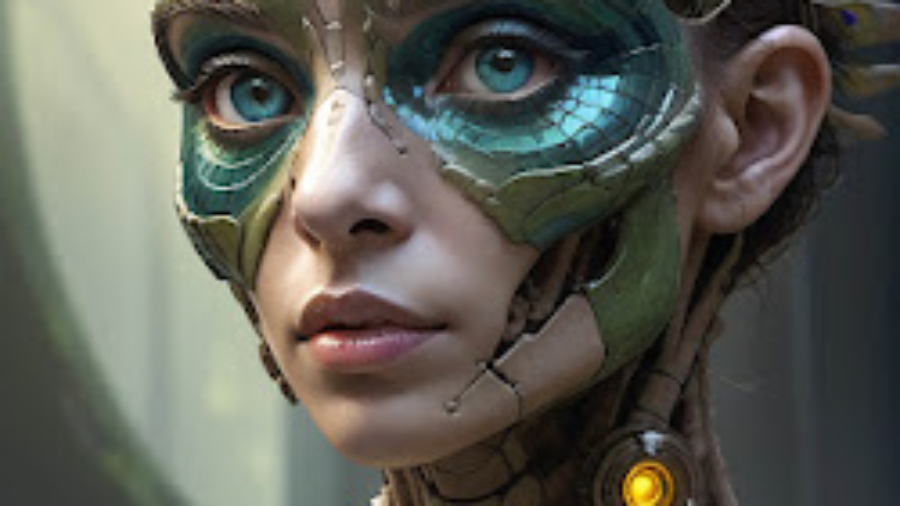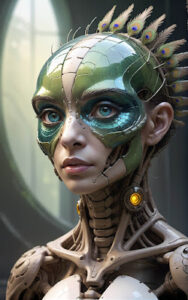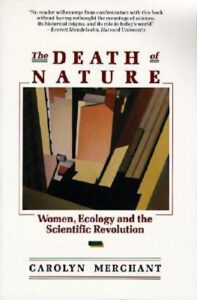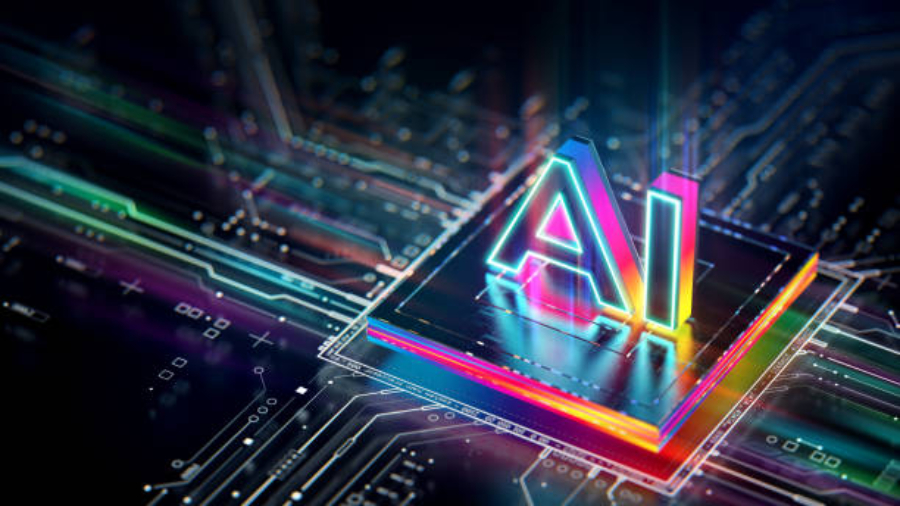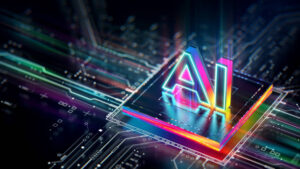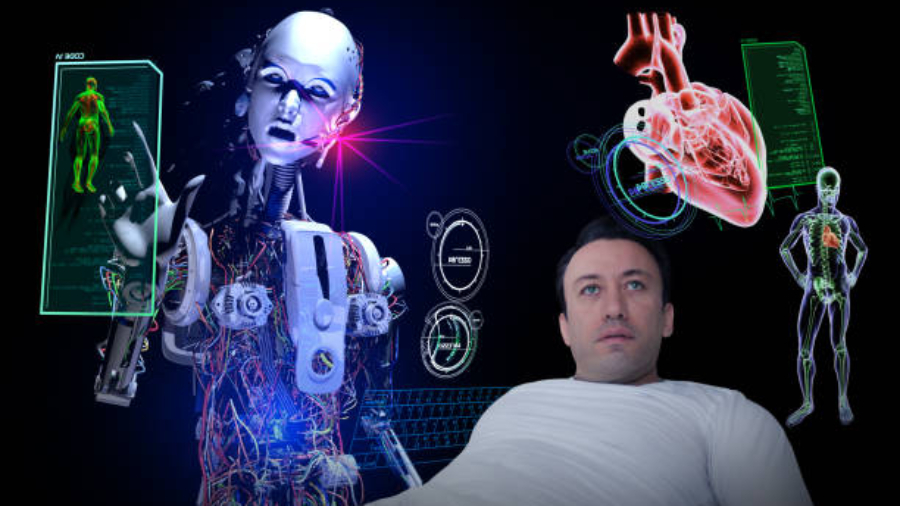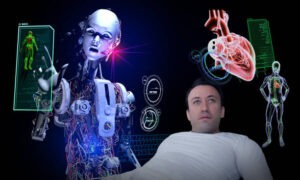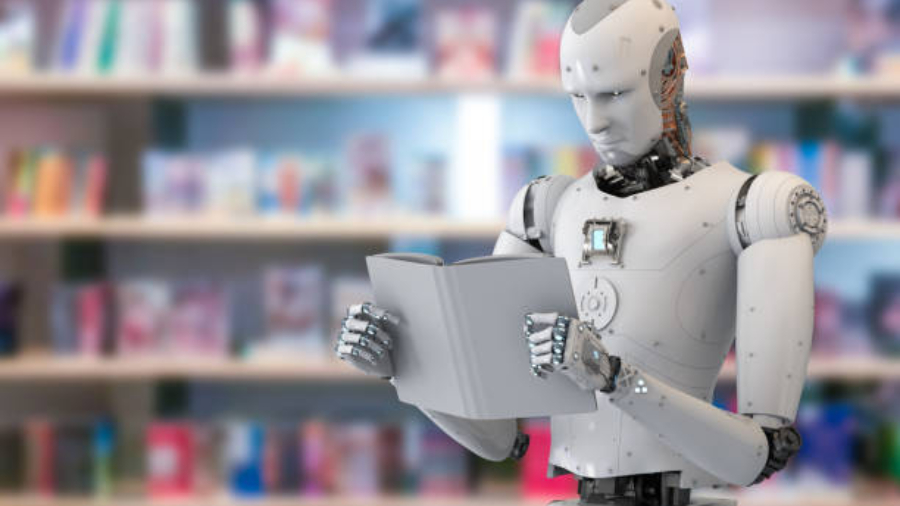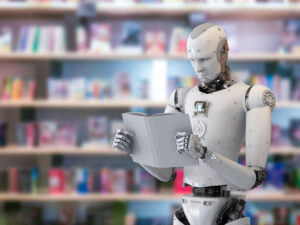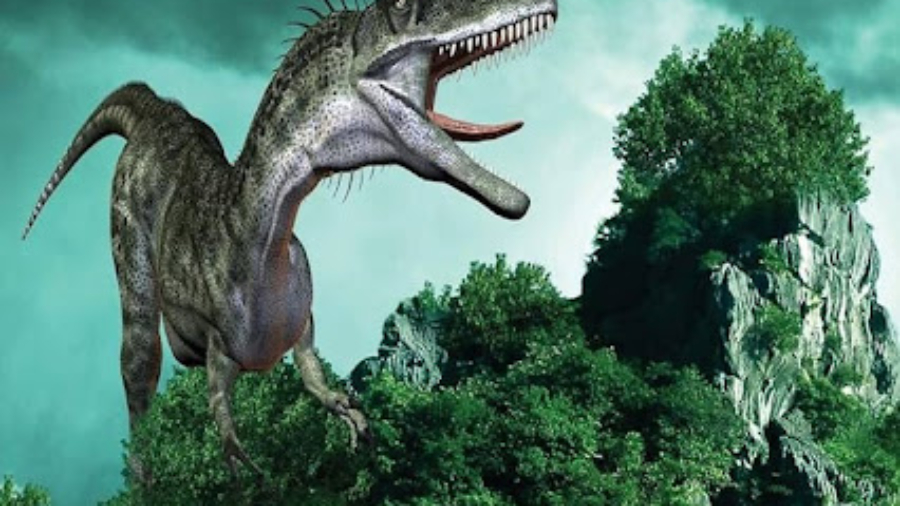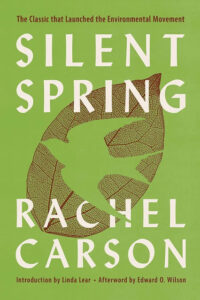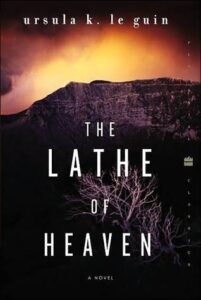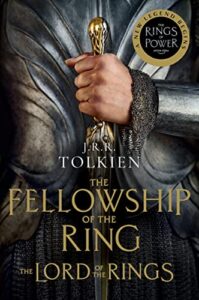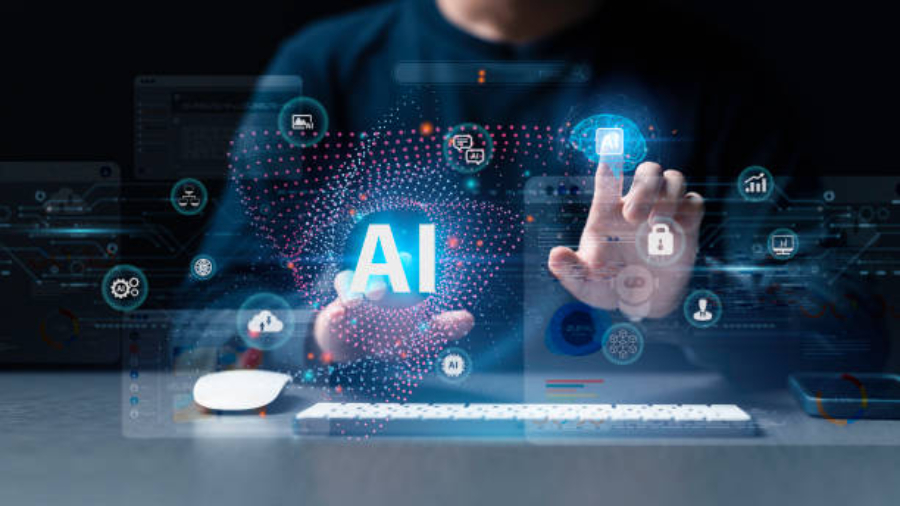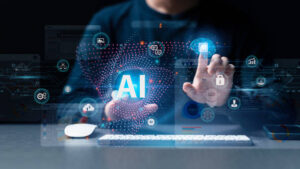Artificial intelligence (AI) has exposed new demands to creatively minded writers of the modern era,leading to books that explore the wonders and pitfalls of intelligent machines. Artificial intelligence is an interesting theme that has found its way into a number of books, creating innovative and provocative stories. These novels often depict a future in which machines are able to think, learn, and feel. A world where the characters are fully alive and interesting. Life looks very relaxing,charming, attractive, and colourful with simple words. Let’s enter the exciting world of AI novels.Smart machines, robots, or computer programmes take on the characters in these stories with their own thoughts and feelings.
Artificial intelligence (AI) is a new trend and buzzword in the literary world. With it, ink-stained fingers dance on paper, weaving stories into flourishing scripts, where whispers of history and art bring the written word to life.Here are the best 10 artificial intelligence books from 2010 to 2023:
Let’s take a look at the top 10 AI novels, their authors, and when they were published. A well-known example is,
“The Circle” by Dave Eggers (2013):
“The Circle,” a dystopian novel written in 2013, takes us into the world of a mega-tech company that promises transparency and connection at the expense of privacy and individuality. This world is both seductive and chilling. Through the eyes of Mae Holland, a youthful and aggressive worker, we witness the Circle’s steady quest for an all-out mix, blending online entertainment, funds, and even medical care into a solitary, omnipresent stage. As Mae ascends the company pecking order, her underlying excitement sours into anxiety as she wrestles with the moral ramifications of the Circle’s extreme straightforwardness drive. ” In this age of online obsession and social media dominance, Eggers masterfully weaves satire and suspense to create a cautionary tale. “The Circle” is a convincing and provocative read, encouraging us to scrutinise the genuine expense of networks in reality as we know it, where innovation holds consistently expanding control.
“Autonomous” by Annalee Newitz (2017):
Imagine robots so smart they’re practically humans who have the status of an individual in a world where they act like modern stewards everywhere. Still, Jack, employed by a pharmaceutical company, makes modest medicines for poor people. He finds a big mystery: someone is taking people’s brains and putting them into robots! Meanwhile, Jack, a robot called Paladin, and various weirdos collaborate to fight for a reality where everyone is free, robots and people alike. It’s like going on an exciting treasure hunt with big questions about who owns it and whether robots should have rights. It’s like going on an exciting treasure hunt with big questions about who owns it and whether robots should have independent rights. This novel has action, thrills, and interesting characters that keep you guessing about what’s to come. It makes you think about it.
“Life 3.0: Being Human in the Age of Artificial Intelligence” by Max Tegmark (2017):
In Life 3.0: Being Human in the Period of AI,” Max Tegmark takes us on a challenging and exciting journey through the rise of artificial intelligence that’s fascinating with completely surprising effects and reshaping our potential for reality. He discusses all the possibilities and challenges of what he calls “Life 3.0,” a hypothetical form of intelligence superior to human intelligence. From the potential dangers of genius to the philosophical issues of consciousness and significance, Tagmark digs into the ethical and existential questions we face with the rapid development of artificial intelligence. Describing computer-based intelligence as the next stage of spectacular development, he offers a fascinating vision of what it might aspire to be human in an undeniably sane world.
“Sea of Rust” by C. Robert Cargill (2017):
The Sea of Rust is a rusting wasteland where robots roam the world after humans. A robot who is tormented by his inability to remember memories, when he meets a daring robot named Catastrophe Jean, goes through a thrilling experience. Freed by AI Imagine robot cowboys fighting for freedom in a dusty, metal desert and having to make tough choices. It’s more or less “Sea of Rust,” a western wild robot sure to keep you entertained.
“Agency” by William Gibson (2020):
In a human-like world where Hillary won the political race, a struggling former pop star and her educated partner become entangled in a web of Russian bots and an artificial intelligence condemned to any form of authority. They’re trying to beat the clock to stop a shadowy organisation from controlling opportunities on a global scale, all while sorting out where the current reality stops and the computerised begins. It’s Gibson’s exemplary cyberpunk twist on fake news, political spine-tingling, and our constant online lives.
“Network Effect” by Martha Wells (2020):
Martha Wells continues the Murder Boat Diaries series with this episode, featuring an AI as the protagonist who navigates complex human emotions while dealing with interstellar adventures. Has the ability to dominate completely.
“Klara and the Sun” by Kazuo Ishiguro (2021):
Kazuo Ishiguro’s novel introduces Klara, an artificial friend who has a unique perspective on the world. This is an emotionally charged story that explores love, friendship, loss, and other deep relationships. Takes a full tour, observes carefully, and explores numerous themes of consciousness. This novel interprets the world of technology and emotions.
“Project Hail Mary” by Andy Weir (2021):
The novel does not focus entirely on AI, but Andy Weir’s novel features an interesting and intelligent AI companion in the form of Rocky, the spaceship’s computer. Whose character is fully endowed with innovative abilities that offer new perspectives on the future? This is an adventure-space travel story.
“Ephemeral Echoes” by Jordan Rivera (2023):
Jordan Rivera’s “Ephemeral Echoes” takes the reader on a journey into a fascinating world where AI meets the surprising domains of memory and sensation. The novel presents an improved artificial intelligence framework that aims to break down and recreate human memories. Rivera’s story invites readers to consider the complex relationship between AI and memory, which raises serious concerns about the cost of technological progress and its impact on human existence.
“Project Genesis” by Ava Clarke (2023):
Clarke’s story reflects moral sentiments and inspires reflection on the essence of humanity. It transcends the limits of consciousness.
Conclusion:
What’s most interesting about artificial intelligence books is that they make us think about our relationship with the latest technology and what the future might hold. They welcome us to imagine universes where machines are instruments as well as living beings with their own psyches.
So, whether you’re into robots with human-like emotions, cloud-smart PCs, or stories that make you ponder the moral implications of AI, there’s a whole universe of artificial intelligence books to explore. In these books, we are taken on a thrilling journey to the future, where the line between man and machine becomes blissfully blurred.
These books offer captivating travel into the world of counterfeit insights, each giving interesting viewpoints on the relationship between people and keen machines. Whether you’re a sci-fi devotee or modern to the class, these books guarantee a lock-in investigation of the conceivable outcomes and challenges that AI presents.

